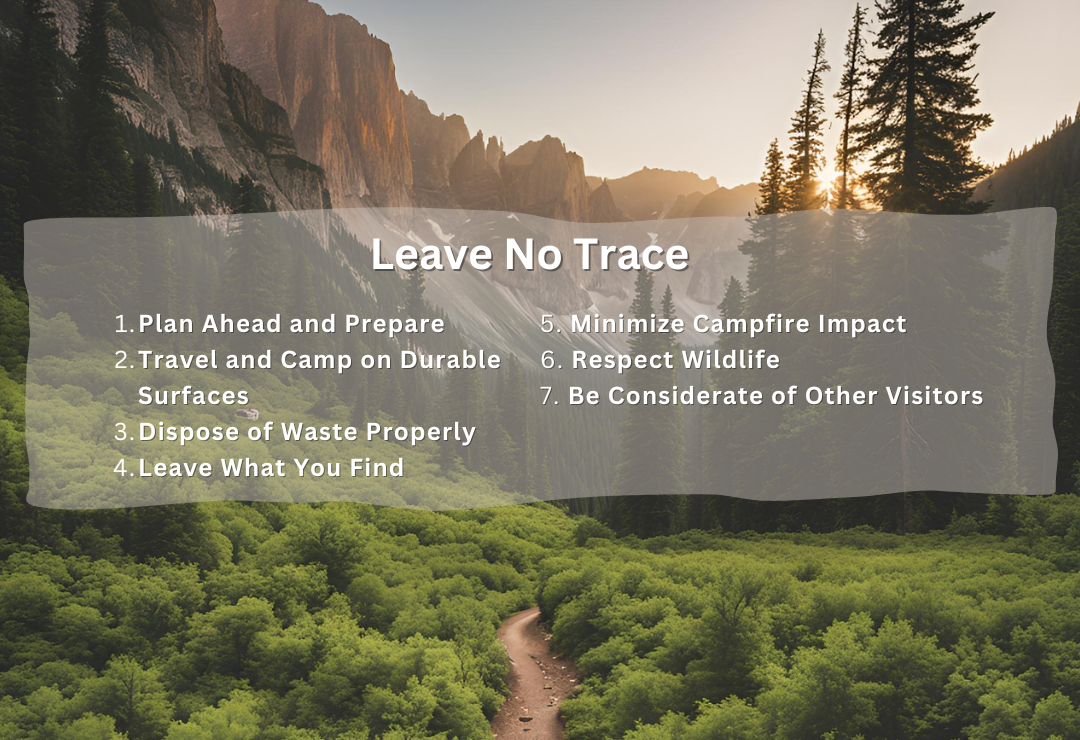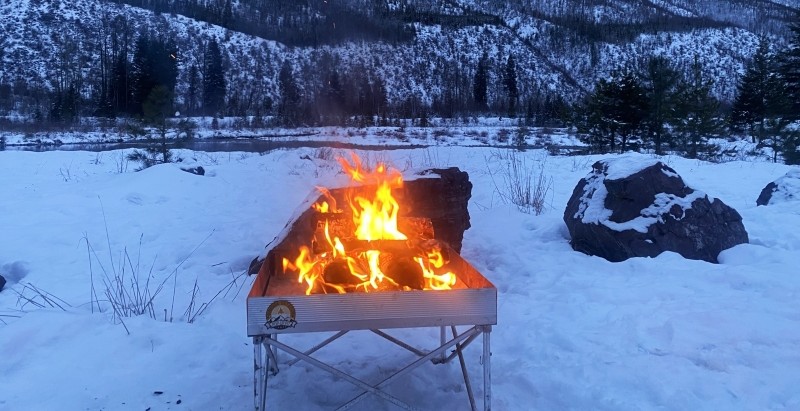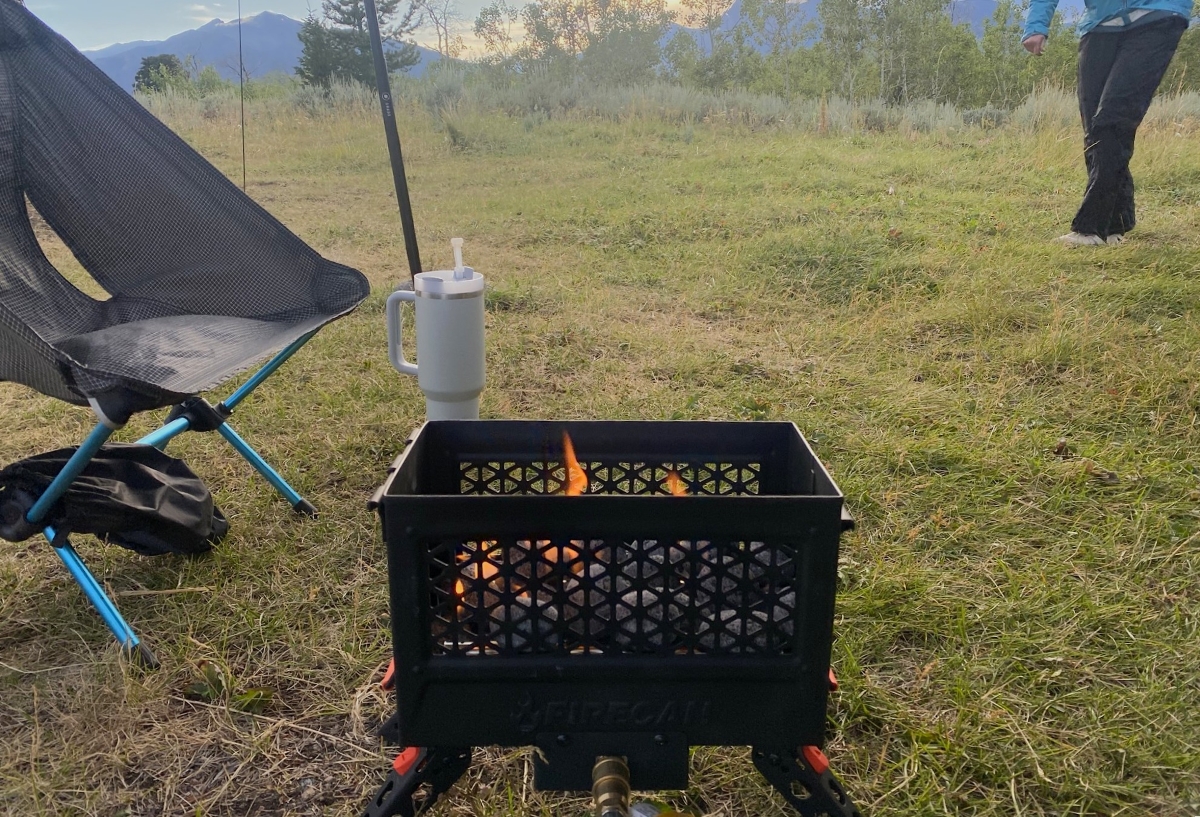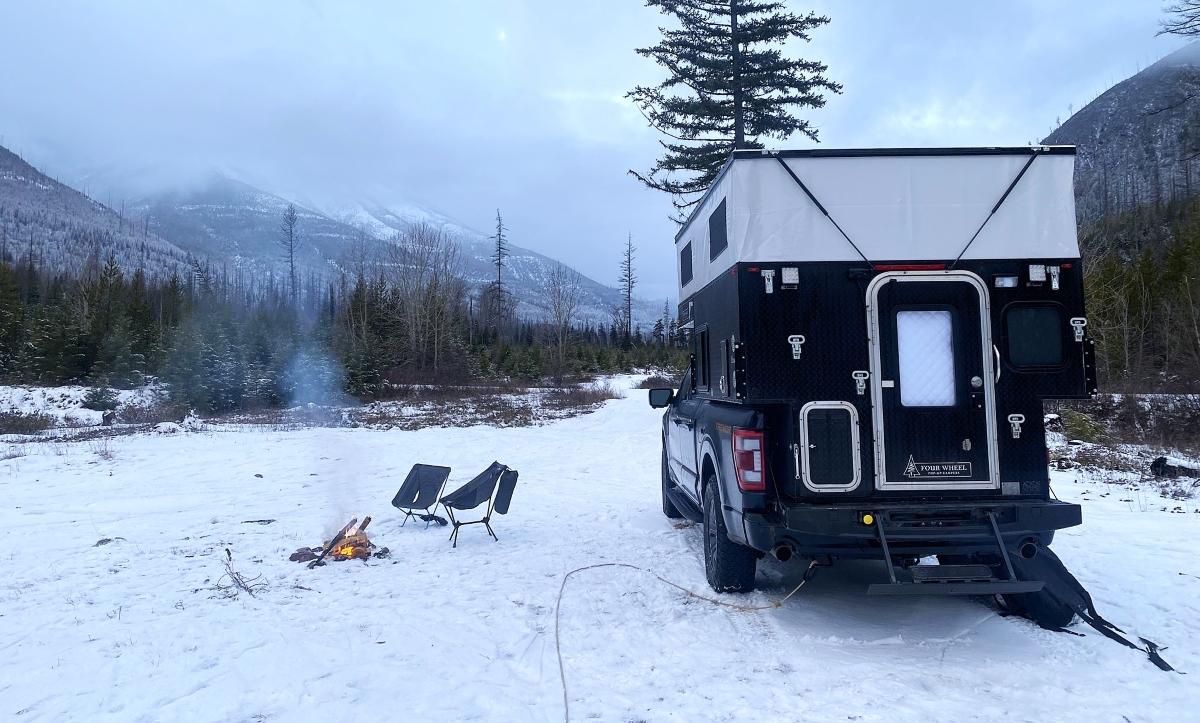
Leave No Trace: A Beginner’s Guide to Responsibly Enjoying the Outdoors
Regardless of the outdoor pursuit, we have a responsibility to be good stewards of the land. When hiking, backpacking, or overlanding, we expect to find the outdoors in pristine condition. There’s nothing worse than discovering an amazing campsite only to see that it’s been trashed by others.
In this blog post, we’ll break down the seven Leave No Trace principles to help you recreate responsibly and leave the outdoors better than you found it.
1. Plan Ahead and Prepare
Proper preparation is the first step in ensuring a safe and low-impact outdoor experience. Research the area you plan to visit, check the weather forecast, and understand local regulations. Being well-prepared minimizes the chances of needing emergency interventions, which can be disruptive to nature.
Key tips:
- Know the regulations of the area you’re visiting.
- Avoid busy times to reduce overcrowding.
- Pack appropriate gear.
2. Travel and Camp on Durable Surfaces
To protect fragile environments, it’s essential to stick to established trails and campsites. Veering off the trail can damage vegetation, erode soil, and disturb wildlife habitats. When camping, choose durable surfaces like rock, sand, or gravel to minimize impact. Try to camp in existing sites rather than creating new ones.
Key tips:
- Use established trails when hiking or overlanding.
- Set up camp at least 200 feet away from water sources.
- Avoid creating new trails or campsites.
3. Dispose of Waste Properly
A core tenet of Leave No Trace is “pack it in, pack it out.” Everything you bring into nature must be carried out, including food wrappers, gear, and trash. This principle also applies to human waste.
Key tips:
- Carry trash bags to pack out all waste, including biodegradable items like orange peels.
- Use a portable toilet or dig a cat hole 6-8 inches deep to bury human waste, far from water sources. Don’t be those people who go wherever they want—nobody wants to camp where you decided to create a toilet.
- Pack out toilet paper and hygiene products. Again, nobody wants to find used toilet paper scattered around a campsite.
4. Leave What You Find
Nature is full of fascinating sights, from unique rocks and wildflowers to ancient artifacts. While it’s tempting to take souvenirs, removing natural or historical items disrupts the ecosystem and deprives future adventurers of the same experience.
Key tips:
- Observe but do not disturb historical or cultural artifacts.
- Leave rocks, plants, and other natural objects as you find them.
- Take photographs instead of mementos.
5. Minimize Campfire Impact
Campfires can cause long-lasting damage to the environment if not handled properly. In many areas, it’s recommended to avoid building fires altogether. If fires are permitted, use established fire rings and keep fires small. If overlanding, consider bringing your own fire pit, like this one, to avoid disturbing the ground.
Key tips:
- Use a camp stove instead of a fire for cooking.
- If fires are allowed, use only dead and downed wood.
- Completely extinguish fires before leaving, ensuring the ashes are cool to the touch.
- Know the fire restrictions for the area. Consider carrying a propane fire pit when overlanding or car camping, as most areas with fire restrictions still allow propane fire pits.
6. Respect Wildlife
Wildlife is an essential part of any outdoor adventure, but getting too close can harm both animals and humans. Observe wildlife from a distance, and never feed them. Feeding wildlife can alter their natural behaviors, leading to dependency and danger. Don’t be the person who gets gored by a bison or elk while trying to take a selfie.
Key tips:
- Store food securely to prevent attracting animals.
- Never feed wildlife, no matter how harmless it seems.
- Keep pets on a leash, or leave them at home if required by the area.
- Stay at least 25 yards away from non-predators like elk, bison, and moose.
- Stay at least 75 yards away from predators like bears and wolves.
7. Be Considerate of Other Visitors
Hiking, backpacking, and overlanding are shared activities, and it’s important to respect fellow adventurers. Keeping noise to a minimum, yielding to others on the trail, and maintaining a polite attitude enhance everyone’s outdoor experience.
Key tips:
- When hiking, yield to uphill hikers and step aside on narrow trails.
- Keep noise levels low to preserve the tranquility of nature. People don’t go into the wilderness to hear your playlist—use headphones if you want to listen to music.
- When choosing a campsite, give others space. Whether backpacking or overlanding, don’t camp right next to others. If a site is designed for one group, don’t squeeze in another. Take the time to find your own space.
Conclusion
The Leave No Trace principles are simple but have a profound impact on the sustainability of our wilderness areas and the overall enjoyment of the outdoors. By incorporating these guidelines into your outdoor adventures, you help preserve nature’s beauty and ensure that future generations can enjoy it too. As a beginner, mastering these principles early on will set you up for a lifetime of responsible and enjoyable outdoor adventures.
Remember, always leave it better than you found it.
Matt Vittal
Matt is a software engineer living in Northwest Montana. He is an avid outdoorsman who spends his free time hiking, backpacking, camping, hunting, and fishing.



